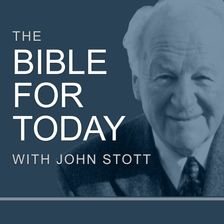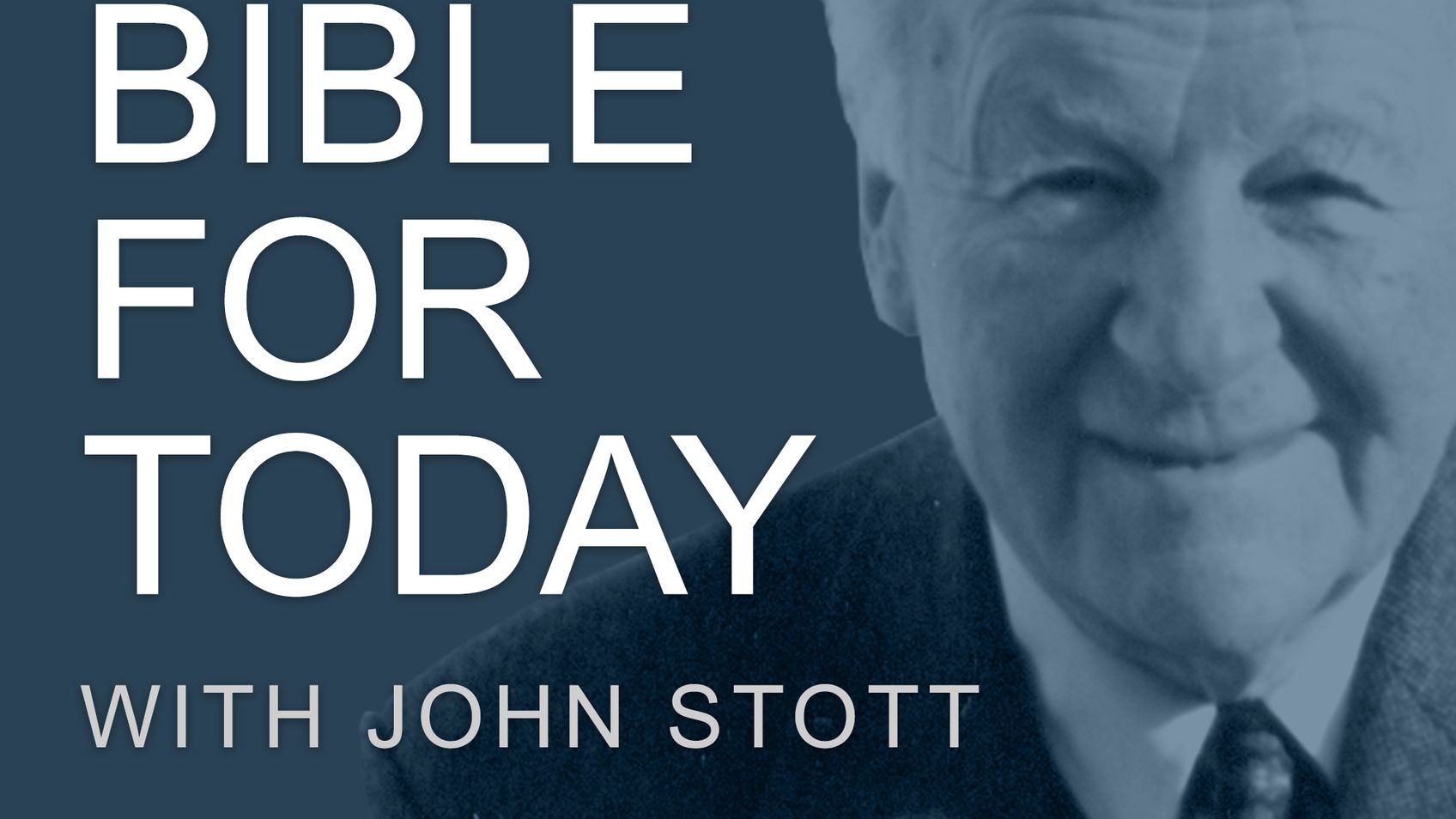Growing In The Prayer Life - Part 1
September 26, 2021

The Bible for Today with John StottPremier
John Stott explains how praying is the Christian's greatest privilege. He warns us from Scripture how not to pray and encourages us as to how we should pray.
More From The Bible for Today with John Stott

Growing In The Prayer Life - Part 2
The Bible for Today with John Stott
October 3, 2021
John Stott uses the 'Lord's prayer' as a template for our prayer life showing that we can only bring our prayers to God as our Father when we have bec

The Greatest Invitation Ever Made - Part 1
The Bible for Today with John Stott
October 10, 2021
John Stott shows us how the heavy burdens we carry in life can be taken from us when we trust Jesus Christ. John explains that in its place we take th

The Greatest Invitation Ever Made - Part 2
The Bible for Today with John Stott
October 17, 2021
John Stott outlines from whom the invitation is sent; to whom it is addressed; what Jesus offers and what He asks from us.

The Cause of His Death - Part 2
The Bible for Today with John Stott
September 19, 2021
John Stott takes us to the Last Supper as Jesus explains to His disciples the significance of the bread and wine. John explains what Jesus meant when

The Cause of His Death - Part 1
The Bible for Today with John Stott
September 12, 2021
John Stott explains why God cannot simply forgive our misdemeanours, as we would forgive one another, and why it was necessary for Jesus to die for us

The Conscience - Part 2
The Bible for Today with John Stott
September 5, 2021
John Stott shows how as Christians we can put the cross of Christ between the devil and our conscience. But he also shows how it is possible to deaden
More on OpenTheo

When I Can’t Stop Thinking About Something, Is That God Speaking?
#STRask
December 1, 2025
Questions about whether having a recurring thought is an indication God is speaking to you, what to say to someone who says they sinned because “God t

Is 1 Corinthians 12:3 a Black-and-White Tool for Discernment?
#STRask
October 27, 2025
Questions about whether the claim in 1 Corinthians that “no one can say ‘Jesus is Lord’ except in the Holy Spirit” is a black-and-white tool for disce

Does Open-Mindedness Require Studying Other Religions Before Becoming a Christian?
#STRask
February 9, 2026
Questions about the claim that if Christians really want to be open-minded, they need to read and study other religions before committing to Christian

How Should I Respond to an LGBTQ Person Who Says He Feels Good About Who He Is?
#STRask
March 2, 2026
Questions about responding to an LGBTQ person who says he feels good about who he is, and whether—since we all have sin in our life we don’t consider

What Is Wrong with Wokeness? With Neil Shenvi
Life and Books and Everything
January 19, 2026
In this timely interview, Kevin talks to Neil Shenvi about his new book (co-authored with Pat Sawyer), entitled “Post Woke: Asserting a Biblical Visio

Prove to Me That Jesus Is Not a Created Being
#STRask
January 26, 2026
Questions about why we should think Jesus is not a created being, and what it means to say God became fully human if part of being human means not bei

What Do You Think About Churches Advertising on Social Media?
#STRask
January 19, 2026
Questions about whether there’s an issue with churches advertising on social media, whether it’s weird if we pray along with a YouTuber, and whether C

Does God Really Need a “Pound of Flesh” to Forgive Sins?
#STRask
January 12, 2026
Questions about how to answer the challenge that God doesn’t need a “pound of flesh” to forgive sins but can simply forgive, and whether the claim in

Can Two Logical People Come to Conflicting Conclusions Without Committing a Fallacy?
#STRask
January 8, 2026
Questions about whether two logical people can come to conflicting conclusions on a topic without committing a fallacy, how Greg, as a public figure,

Sense, Sensibility, and Adam Smith with Jan Van Vliet
Life and Books and Everything
February 16, 2026
This year is a special anniversary for the United States as Americans celebrate 250 years of independence. But 1776 was an important year in more ways

Why Would Any Rational Person Have to Use Any Religious Book?
#STRask
December 8, 2025
Questions about why any rational person would have to use any religious book, whether apologetics would be redundant if there were actually a good, un

Why Are So Many Christians Condemning LGB People Just Because of How They Love?
#STRask
January 15, 2026
Questions about Christians condemning LGB people just because of how they love, how God can expect someone to be celibate when others are free to marr

Does God Hear the Prayers of Non-Believers?
#STRask
February 26, 2026
Questions about whether or not God hears and answers the prayers of non-believers, and thoughts about a church sign that reads (as if from God), “Just

How Can I Explain Modesty to My Daughter?
#STRask
November 27, 2025
Questions about how to explain modesty to a nine-year-old in a way that won’t cause shame about her body, and when and how to tell a child about a pre

How Do I Determine Which Topics at Work Are Worth Commenting On?
#STRask
January 5, 2026
Questions about how to determine which topics at work are worth commenting on, and a good way to respond when you’re in a group Bible study and hear e
